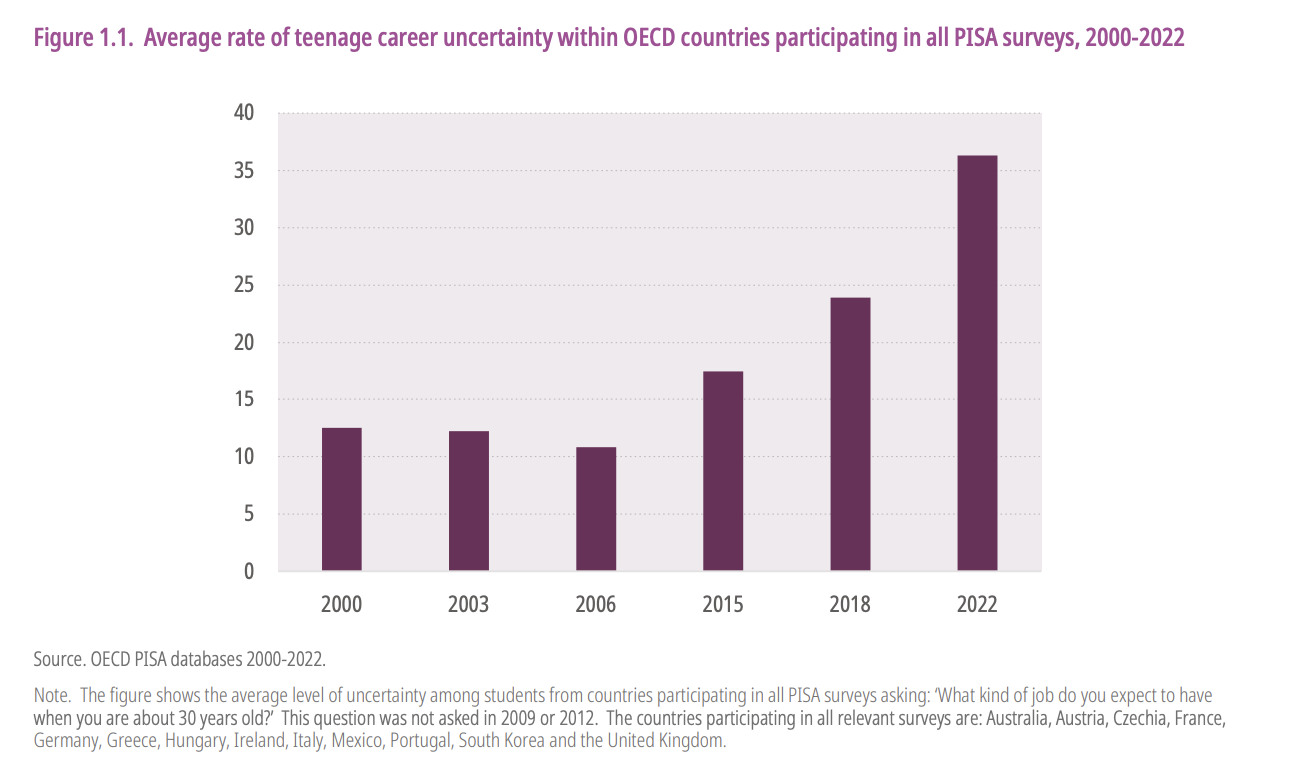
Employers told to engage with students to broaden their career aspirations

In the wake of persistent skills gaps, employers worldwide are being urged to engage with students after a new report shows that they remain uncertain about their future careers.
The new report from the Organisation for Economic Co-operation] and Development (OECD) revealed that a "significant portion of students are uncertain about their career plans".
It also found that students' job expectations remain limited to a number of traditional, high-status jobs that do not align with the actual job distribution in the market.

Mathias Cormann, Secretary-General of the OECD, said efforts are needed to give young people the career guidance they need to understand the options open to them.
"Employers also have a key role to play in helping young people see the potential of future opportunities," Cormann said in a statement.
But according to the report, only a limited percentage of students at the age of 15 in OECD countries have been exposed to work-related environments, such as:
"In general, students who could recall such activities generally said that it had happened on just a single occasion, limiting opportunities to gain useful, new information and experiences," the report said.
Nick Chambers, CEO of the Education and Employers Charity, said that employers can carry out simple actions to address the problem.
"What a difference it makes if employers simply encourage their employees to volunteer an hour a year to chat to children and young people about their job and opportunities in the sector," Chambers said in the report's foreword.
He stressed that employer engagement is important to provide students the very latest insights into the reality of jobs.
"Bringing the workplace directly into classrooms helps decode the complexity of modern jobs and expands students' awareness of opportunities in high-demand sectors like technology and gain into careers they might never have considered."
The advice came as organisations across the world grapple with recruitment challenges.
A report from the World Economic Forum (WEF) earlier this year revealed that only 29% of businesses expect talent availability to improve over the 2025-2030 period, while 42% expect talent availability to decline.

These workforce challenges have been cited by employers as barriers to organisational transformation over the next five years, with skills gaps rated as the top challenge (63%) with the inability to attract talent rated as sixth (27%).
"This skills challenge persists across almost all industries and geographies, ranking first in 52 out of 55 economies and 19 out of 22 sectors," the report read.
For employers that are facing skills shortages, employer engagement with schools is "particularly important," according to the OECD report.
"This is especially the case where shortages are accentuated by gender or other disparities and there is determination to create more balanced workforces," the report read.
According to the report, young people considering occupations where they may be poorly represented need to be able to see for themselves whether such workplaces would be welcoming and supportive.
"Employer engagement programmes, such as career talks, workplace visits, and job fairs can be very effective means of broadening (as well as deepening) career aspirations," the report read.